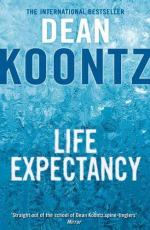|
This section contains 1,201 words (approx. 5 pages at 300 words per page) |

|
Aging is defined as the general physical deterioration of an organism ending eventually in death. In 1513, Spanish explorer Ponce de Leon landed in Florida, searching for the fountain of youth, a miraculous life-restoring pool. Today, scientists continue the pursuit of extended life span by seeking to understand the role genetics play in aging.
Frenchman Jeanne Calment (1875-1997) holds the record for human longevity-122 years and 164 days. Calment's relatives also lived to an exceptionally old age. People living in some mountainous regions of the Earth have reported lives of extraordinary duration. The Vilcabamba tribe of Equador, natives of Azerbaijan, a former Soviet province, and Hanzukuts of Pakistan claim many of their people live beyond 100, and some up to 160 years. While these cases are not officially documented, the facts still point to a genetic connection to longevity.
Scientists distinguish between life expectancy and life...
|
This section contains 1,201 words (approx. 5 pages at 300 words per page) |

|


